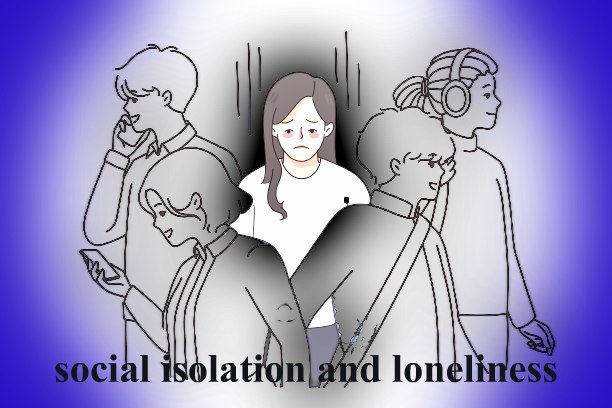Social Isolation and Loneliness: A Growing Concern in Modern Society

In our increasingly interconnected world, it may seem paradoxical that social isolation and loneliness are on the rise. We have the tools to communicate with people all over the globe at our fingertips, yet an alarming number of individuals report feeling disconnected and lonely. This paradox raises questions about the nature of modern society and the impact it has on our social lives. In this blog, we’ll explore the growing concern of social isolation and loneliness in contemporary society, its causes, consequences, and potential solutions.
Understanding the Problem
Social isolation and loneliness are distinct but closely related issues. Social isolation refers to a lack of social contacts, interaction, or integration with one’s social network or community. Loneliness, on the other hand, is a subjective emotional state characterized by the perception of inadequate social connection and support.
Modern society presents several factors contributing to these problems:
Technology and Screen Time: While technology connects us in many ways, it can also facilitate isolation. Excessive screen time and online interactions may replace face-to-face relationships, leading to feelings of loneliness.
Urbanization: The migration of populations to urban areas often results in fragmented communities. In large cities, it’s common for people to live amidst millions but still feel profoundly isolated.
Changing Family Structures: Extended families and close-knit communities have given way to smaller, nuclear families. This shift can reduce the immediate social support available to individuals.
Work-Related Stress: Long working hours and demanding careers can leave individuals with limited time for social interactions and nurturing relationships.
“The most valuable currency in the digital age isn’t likes or shares; it’s genuine human connection.”
–Unknown
The Consequences of Social Isolation and Loneliness
The implications of social isolation and loneliness are profound and far-reaching:
Mental Health: Both conditions are associated with increased risks of anxiety, depression, and other mental health issues. The lack of social support can exacerbate these problems.
Physical Health: Research suggests that social isolation and loneliness can have negative effects on physical health, including increased risk of cardiovascular disease, weakened immune systems, and a decreased lifespan.
Cognitive Decline: Loneliness has been linked to cognitive decline and an increased risk of developing Alzheimer’s disease.
Reduced Quality of Life: Social isolation and loneliness can result in a diminished quality of life, as individuals miss out on the emotional and psychological benefits of social connections.
“In a world that’s more connected than ever, we find ourselves more alone than we’d ever imagined.”
–Unknown
Addressing the Issue
While social isolation and loneliness are indeed growing concerns, there are ways we can mitigate and combat these issues:
Community Building: Encourage local communities to organize events and social activities that bring people together, fostering a sense of belonging and mutual support.
Balanced Technology Use: Promote healthy tech usage by setting boundaries on screen time and using technology to facilitate real-world social interactions, rather than replacing them.
Mental Health Awareness: Promote awareness about the mental health impact of social isolation and loneliness. Encourage individuals to seek help and support when needed.
Support Systems: Encourage strong family bonds and nurturing relationships. Friends, family, and support groups can provide a safety net during challenging times.
Volunteerism: Volunteering and giving back to the community can be a meaningful way to combat loneliness and isolation while making a positive impact.
Final Words:
In conclusion, social isolation and loneliness are growing concerns in modern society, affecting people of all ages and backgrounds. Understanding the root causes, recognizing the consequences, and actively promoting solutions can help us build a more connected, supportive, and compassionate world. By fostering meaningful social connections and addressing the challenges of modern life, we can begin to reverse this troubling trend and improve the overall well-being of our society.






